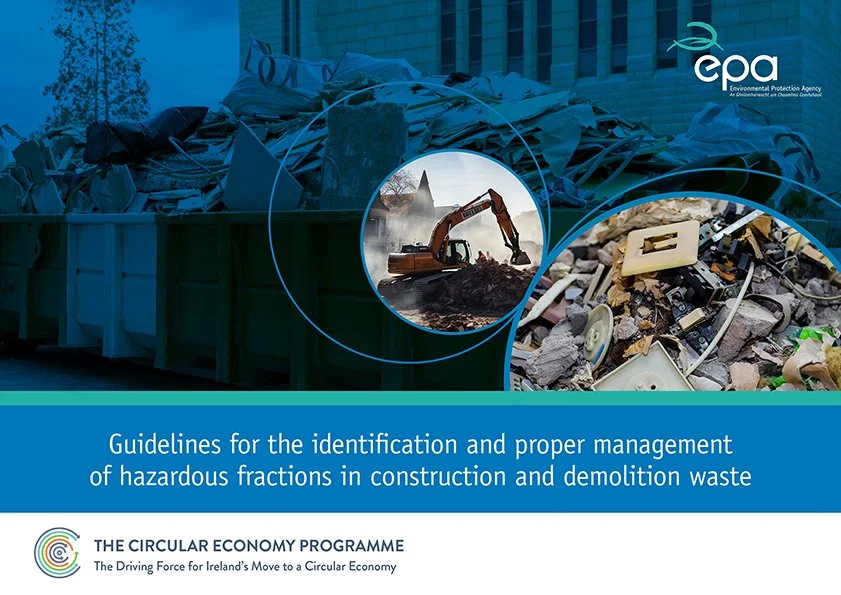Why Construction & Demolition Waste Management Plans Need Digital Support
When a new housing development is proposed, one of the standard requirements is a Construction & Demolition (C&D) Waste Management Plan (WMP). On paper, this looks like a robust safeguard: developers must outline how they will manage materials, prevent illegal tipping, and ensure proper recycling or disposal.
The Hidden Cost of Old Habits — Why Developers Are Asking for Hub360
Missing paper dockets and fragmented records are one of the biggest drivers of construction delays and disputes. From late paperwork to unclear site records, inefficiency is holding Irish construction projects back — and costing developers both time and money.
According to Autodesk and FMI’s Harnessing the Data Advantage report, poor-quality or incomplete information costs the global construction sector an estimated $1.85 trillion annually. In Ireland, the problem is more local and more familiar: paperwork in construction slows valuations, fuels disputes, and delays payments.
Saving Time, Boosting Efficiency: How HUB360 Transforms Public Project Management
When local authorities are under pressure to deliver faster, comply better, and stay accountable, efficiency becomes everything.
Teams managing roads, infrastructure, and environmental compliance face growing demands — from Article 27 obligations to Circular Economy targets — all while navigating legacy systems and stretched capacity.
HUB360 brings clarity, automation, and real-time control, making compliance not just achievable, but efficient.
Winning Tenders with Confidence: How HUB360 Gives Developers a Competitive Edge
For developers bidding on public infrastructure and large-scale construction projects, the rules have changed.
Today, it’s not just about cost or capability — it’s about compliance, carbon, and circular economy performance. And if you can’t prove your approach with hard data, your bid can fall short.
That’s where HUB360 gives forward-thinking developers a serious advantage.
How HUB360 Simplifies Compliance with Article 27 — And Why That Matters
When it comes to Ireland’s sustainability obligations, Article 27 is no longer just guidance — it’s the law. Under Circular Economy legislation, public sector bodies must prove that materials claimed as by-products (like road planings) are reused legally, cleanly, and verifiably.
So how can local authorities meet this burden of proof, especially while already juggling climate action plans, procurement policies, and high public expectations?
The answer is digital. And the solution is HUB360.
Scaling Oversight Across Multiple Sites and Suppliers – Without the Headache
For project and operations managers, juggling multiple construction sites means managing a never-ending stream of updates, subcontractors, materials, and compliance checks. When every supplier uses different formats, processes, or paper tickets, staying in control quickly becomes overwhelming.
That’s where Hub360 comes in.
Built specifically for infrastructure environments, Hub360 gives managers a unified, real-time view of every active site, supplier, and material movement—no matter how many projects you’re running.
How Construction Teams and Developers Are Driving Profitability with Digital Delivery Platforms
For many in the construction industry—especially developers and infrastructure contractors—the push to digitise often starts with compliance. Regulatory pressures, public client demands, and sustainability targets all play a role.
But the real value of digital delivery platforms often goes far beyond ticking compliance boxes.
Tools originally introduced to manage risk or reporting are now helping teams streamline processes, reduce waste, and strengthen margins—without adding workload.
From Quarry to Site: End-to-End Visibility for Material Movements and Carbon Tracking
In today’s construction and infrastructure projects, knowing what’s moving, where it’s going, and what carbon impact it’s creating isn’t a “nice to have”—it’s essential. Whether you’re managing roadworks, civil infrastructure, or utility upgrades, traceability and environmental accountability are quickly becoming non-negotiable.












